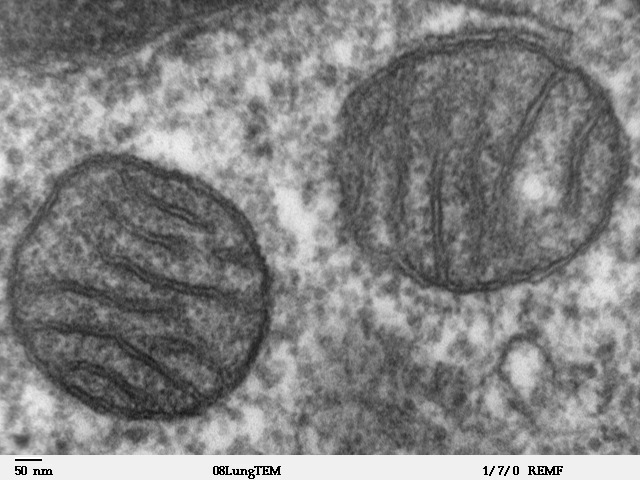
From Detecting Design:
Now, it is true that mitochondrial organelles are quite unique and very interesting. Unlike any other organelle, except for chloroplasts, mitochondria appear to originate only from other mitochondria. They contain some of their own DNA, which is usually, but not always, circular – like circular bacterial DNA (there are also many organisms that have linear mitochondrial chromosomes with eukaryotic-style telomeres). Mitochondria also have their own transcriptional and translational machinery to decode DNA and messenger RNA and produce proteins. Also, mitochondrial ribosomes and transfer RNA molecules are similar to those found in bacteria, as are some of the components of their membranes. In 1970, these and other similar observations led Dr. Lynn Margulis to propose an extracellular origin for mitochondria in her book, Origin of Eukaryotic Cells (Margulis, 1970). However, despite having their own DNA, mitochondria do not contain anywhere near the amount of DNA needed to code for all mitochondria-specific proteins. Over 99% of the proteins needed for mitochondrial function are actually produced outside of the mitochondria themselves. The DNA needed to code for these proteins is located within the cell’s nucleus and the protein sequences are assembled in the cytoplasm of the cell before being imported into the mitochondria (Endo and Yamano, 2010). It is hypothesized that these necessary genes were once part of the mitochondrial genome, but were then transferred and incorporated into the eukaryotic nuclear DNA over time. Not surprisingly then, none of the initial mtDNAs investigated by detailed sequencing, including animal mtDNAs, look anything like a typical bacterial genome in the way in which genes are organized and expressed (Michael Gray, 2012).
It is interesting to note at this point that Margulis herself wasn’t really very Darwinian in her thinking. She opposed competition-oriented views of evolution and stressed the importance of symbiotic or cooperative relationships between species. She also argued that standard neo-Darwinism, which insists on the slow accrual of mutations by gene-level natural selection, “is in a complete funk” (Link).
But what about all of those similarities between mitochondria and bacteria? It would seem like these similarities should overwhelmingly support the theory of common ancestry between bacteria and mitochondria.
Well, the problem with Darwinian thinking in general is that too much emphasis is placed on the shared similarities between various creatures without sufficient consideration of the uniquely required functional differences. These required differences are what the Darwinian mechanism cannot reasonably explain beyond the lowest levels of functional complexity (or minimum structural threshold requirements). The fact of the matter is that no one has ever observed nor has anyone ever published a reasonable explanation for how random mutations combined with natural selection can produce any qualitatively novel protein-based biological system that requires more than a few hundred specifically arranged amino acid residues – this side of trillions upon trillions of years of time. Functionally complex systems that require a minimum of multiple proteins comprised of several thousand specifically-coded amino acid residue positions, like a rotary flagellar motility system or ATPsynthase (illustrated), simply don’t evolve. It just doesn’t happen nor is it remotely likely to happen in what anyone would call a reasonable amount of time (Link). And, when it comes to mitochondria, there are various uniquely functional features that are required for successful symbiosis – that bacteria simply do not have. In other words, getting a viable symbiotic relationship established to begin with isn’t so simple from a purely naturalistic perspective. More.
See also: Cells were complex even before mitochondria?: Researchers: Our work demonstrates that the acquisition of mitochondria occurred late in cell evolution, host cell already had a certain degree of complexity
and Life continues to ignore what evolution experts say (symbiosis can happen)
Follow UD News at Twitter!